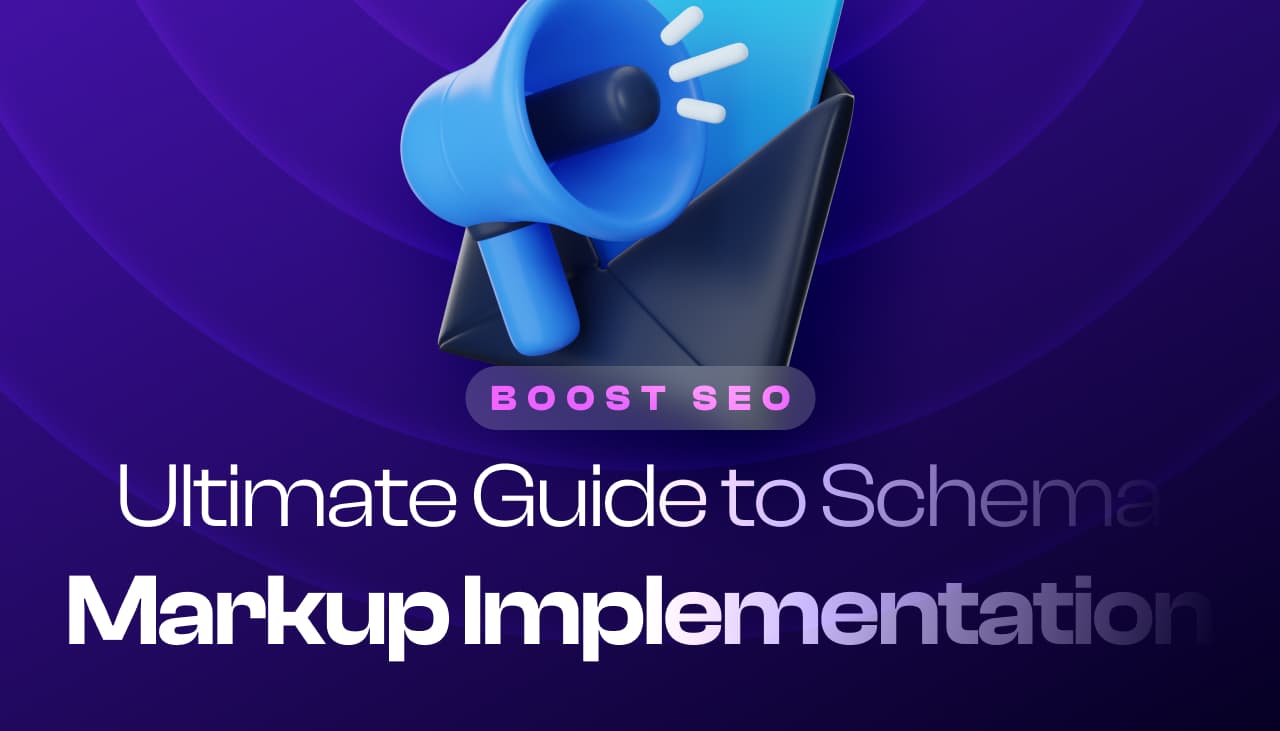In the world of digital marketing, on-page SEO is a cornerstone of success. We all strive to make our websites as visible and attractive to search engines as possible. That’s where on-page SEO plugins come into play, offering a myriad of tools to enhance our site’s SEO performance.
Choosing the right plugin can feel like navigating a maze. With so many options available, it’s crucial to understand the strengths and weaknesses of each. We’ve dived deep into the most popular on-page SEO plugins to bring you a comprehensive comparison.
Our goal? To help you make an informed decision that aligns with your site’s needs and goals. Let’s explore together and find the perfect SEO companion for your website.
Table of Contents
Key Takeaways
- On-page SEO is critical for improving website visibility and user experience, encompassing content quality, site speed, mobile-friendliness, and meta tags optimization.
- On-page SEO plugins simplify SEO tasks by offering real-time guidance on keyword usage, content readability, and meta tags, alongside features like XML sitemap generation and social media integration.
- Key features to consider in an on-page SEO plugin include keyword optimization, real-time content analysis, meta tag optimization, XML sitemap generation, social media integration, and support for structured data markup.
- Yoast SEO, All in One SEO Pack, and Rank Math are leading on-page SEO plugins, each with unique strengths: Yoast excels in content and readability analysis, All in One SEO Pack is known for its simplicity and effective optimization, and Rank Math offers advanced features with a user-friendly interface.
- The choice of an on-page SEO plugin should be based on specific website needs and goals, considering the plugin’s features, pros, cons, and whether the investment in premium features aligns with one’s SEO strategy and budget.
- Regular updates and a strong support system are essential for any on-page SEO plugin to ensure that SEO strategies remain effective and in line with the latest search engine guidelines and algorithm changes.
Importance of On-Page SEO
Understanding the significance of on-page SEO is crucial for any digital marketing strategy. It’s the foundation that allows websites to communicate clearly with search engines. By optimizing individual web pages, we improve the site’s visibility in search engine results. This involves optimizing both the content and the HTML source code of pages.
Content quality and keyword optimization are critical components. They ensure that our content is not only relevant but also valuable to our audience. Moreover, on-page SEO isn’t just about keywords. It encompasses site speed, mobile-friendliness, and user experience. These elements are essential for retaining visitors and converting them into customers.
Meta tags play a pivotal role as well. They provide search engines with information about our webpage content. This includes titles, descriptions, and keywords for each page. Proper use of meta tags improves click-through rates from search engine results pages (SERPs).
On-page SEO also involves optimizing images. This means using relevant file names, alt tags, and compressing images for faster loading times. Images can significantly impact page load speed, a crucial Google ranking factor.
Internal linking is another vital aspect. It helps spread link equity (ranking power) throughout our website. It also makes it easier for visitors to navigate our site and discover more content.
Lastly, on-page SEO is an ongoing process. Search engine algorithms constantly evolve. Staying updated with the latest SEO practices is essential for maintaining and improving our website’s search engine ranking.
By prioritizing on-page SEO, we’re not just enhancing our website’s visibility in search results. We’re also improving the overall user experience. This, in turn, can lead to higher engagement rates, lower bounce rates, and ultimately, more conversions.
What are On-Page SEO Plugins?
On-page SEO plugins are crucial tools that integrate into website management platforms. They help us optimize web content for search engines directly from our site’s dashboard. By simplifying the process of SEO, these plugins ensure that even those without technical expertise can improve their site’s visibility. Most plugins offer real-time guidance on keyword usage, meta tags, and content readability. This instant feedback allows us to make necessary adjustments right away, enhancing our content’s SEO value.
Another key feature is the ability to generate XML sitemaps automatically. These sitemaps help search engines crawl and index our content more effectively. Plus, on-page SEO plugins commonly include functionalities for optimizing social media sharing. They let us customize how our content appears when shared on platforms like Facebook and Twitter. This level of customization extends to image optimization, reducing load times, and improving user experience.
Additionally, they offer insights into our website’s performance. We’re talking about detailed analyses that cover everything from page speed to mobile friendliness. With these insights, we can pinpoint areas needing improvement and act swiftly. Importantly, these plugins are regularly updated to stay in line with the latest SEO guidelines and algorithm changes. This ensures our strategies remain relevant and effective.
By harnessing the power of on-page SEO plugins, we’re not just working on improving our site’s visibility. We’re also enhancing the overall experience for our users, which in turn, can lead to higher engagement rates and conversions. Armed with the right plugin, we can ensure our website communicates clearly with search engines, paving the way for better rankings and increased traffic.
Key Features to Consider
When exploring on-page SEO plugins, there are several key features to consider that can drastically impact the effectiveness of your SEO efforts.
Keyword Optimization capabilities are a must. A great plugin suggests keywords based on current trends and your content’s context.
It should also offer Real-time Content Analysis. This feature gives immediate feedback on your content’s SEO quality as you write.
Meta Tag Optimization is crucial. The ability to easily customize page titles and meta descriptions can significantly enhance search visibility.
Don’t overlook XML Sitemap Generation. This automatically creates a map of your site’s content, making it easier for search engines to crawl.
A comprehensive on-page SEO plugin also includes Social Media Integration. It ensures your content is optimized for sharing on social platforms.
Image Optimization tools are essential for reducing load times and improving user experience. They should allow you to compress and tag images effectively.
The ability to Monitor Page Speed directly from the plugin can be incredibly beneficial. Page speed is a critical ranking factor and user satisfaction component.
Plugin support for Structured Data Markup is a powerful feature. It helps search engines understand the content of your site, potentially enhancing search results with rich snippets.
Lastly, ensure the plugin offers Regular Updates and Support. SEO trends evolve rapidly, and having an up-to-date tool is pivotal for maintaining a competitive edge.
By keeping these features in mind, we can better assess and compare the available on-page SEO plugins. This ensures we select one that aligns with our specific needs and goals, maximizing our website’s potential in search engine rankings.
Comparison of Top On-Page SEO Plugins
When it comes to enhancing our website’s SEO, choosing the right plugin is critical. In our experience, there are a few standout options that have consistently delivered impressive results.
Yoast SEO is often the first choice for many. It’s known for its comprehensive content analysis tool that guides us through optimizing our posts. It also excels in readability checks, ensuring our content is accessible.
All in One SEO Pack is another favorite, particularly among those of us who prefer a plug-and-play solution. Its setup is straightforward, making it ideal for beginners. Yet, it packs enough power for more advanced SEO tasks.
Rank Math is a newer contender that’s quickly gaining popularity. Its user-friendly interface coupled with powerful automation tools sets it apart. It also offers integrated schema markup, a boon for boosting our content’s visibility in rich snippets.
Here’s a quick comparison table to highlight their key features:
| Feature | Yoast SEO | All in One SEO Pack | Rank Math |
|---|---|---|---|
| Content Analysis | Yes | Limited | Yes |
| Readability Check | Yes | No | Yes |
| XML Sitemaps | Automatic | Automatic | Automatic |
| Schema Markup | Limited | No | Comprehensive |
| Social Media Integration | Yes | Yes | Yes |
| Real-Time Keyword Optimization | Yes | Yes | Yes |
Choosing between them largely depends on our specific needs. Yoast SEO is unmatched for content and readability analysis. All in One SEO Pack offers simplicity and effectiveness. Rank Math shines with its advanced features and intuitive design.
Ultimately, we base our decision on what we aim to achieve with our website’s SEO strategy. Each plugin has its strengths, and the right choice can significantly boost our online presence.
Plugin A: Features, Pros, and Cons
When exploring on-page SEO tools, Yoast SEO consistently emerges as a frontrunner.
Its intuitive traffic light system simplifies SEO for beginners and experts alike.
Yoast SEO excels in readability checks, ensuring content is accessible and engaging.
It also automates meta tags and generates XML sitemaps, streamlining site indexing.
Keyword optimization with Yoast is comprehensive, supporting single and multiple focus keywords.
Real-time content analysis provides instant feedback for optimization tweaks.
But it’s not without its drawbacks.
One notable con is the premium features come at a cost, which might be prohibitive for some.
Occasionally, the suggestions provided can be overly aggressive, pushing towards keyword stuffing.
Let’s look at some data:
| Feature | Availability |
|---|---|
| Readability Check | Yes |
| XML Sitemaps | Yes |
| Real-time Analysis | Yes |
| Multiple Keywords | Premium Only |
The choice of whether Yoast SEO meets one’s needs comes down to evaluating these pros against the cons.
We find Yoast SEO stands out for its ease of use and comprehensive features.
However, the investment in premium features is something to consider based on one’s budget and SEO needs.
Plugin B: Features, Pros, and Cons
After discussing Yoast SEO, it’s pivotal we dive into the All in One SEO Pack. This plugin is renowned for simplicity and efficiency in optimizing WordPress sites for search engines. It offers a suite of features right out of the box, catering to both beginners and advanced users.
One of its standout features is the automated generation of meta tags. This is a huge time-saver. Additionally, it supports Google Analytics integration, enhancing the ability to track website performance seamlessly.
Social media integration is another key aspect. It ensures your content looks appealing when shared on platforms like Facebook and Twitter.
The XML sitemap support improves website indexing by search engines. The All in One SEO Pack also offers advanced canonical URLs, avoiding duplicate content issues that could harm SEO rankings.
Let’s peek at the pros. The plugin is beginner-friendly, making it easy for anyone to start improving their SEO. It’s also incredibly flexible, allowing customization to fit various SEO strategies.
However, it’s not without its cons. The interface, while straightforward, might seem outdated compared to others. Some users also find the advanced features a bit intimidating at first glance.
Yet another consideration is the free version’s limitations. For full functionality, upgrading to the premium version is necessary, which involves additional costs.
Every tool has its trade-offs. The All in One SEO Pack offers a robust framework for enhancing a website’s search engine visibility with minimal fuss. Its efficiency and automation make it a viable contender in the realm of on-page SEO plugins.
Plugin C: Features, Pros, and Cons
When we delve into Plugin C, its standout feature is the real-time SEO analysis. This tool provides instant feedback on content optimization. It helps in tweaking your content for better search engine rankings.
Another notable feature is its keyword optimization tool. It allows for multiple focus keyword analysis. This ensures that our content is not just optimized for a single keyword but for a variety of relevant terms.
The inclusion of a snippet editor is also a big plus. It offers a preview of how our posts will appear in search results. This enables us to adjust our meta titles and descriptions for maximum click-through rates.
Social media previews are integrated into Plugin C. They allow us to see how our posts will look when shared across different social platforms. This is crucial for ensuring our content is engaging across all channels.
On the downside, Plugin C’s interface can be quite overwhelming for beginners. Its vast array of features and settings may confuse those new to SEO.
Cost is another consideration. While Plugin C offers a free version, the most valuable features are locked behind a premium subscription. This may deter those on a tight budget from fully leveraging the plugin’s capabilities.
In terms of support, feedback is mixed. Some users report quick, helpful responses while others experience delays. This inconsistency can be frustrating when immediate help is needed.
Lastly, Plugin C’s impact on website speed is a common concern. As it operates in real-time, it may slow down the editing process, particularly on less powerful hosts.
Despite these drawbacks, Plugin C remains a powerful tool for on-page SEO. Its comprehensive set of features can significantly enhance a website’s visibility in search engine results. The key is to weigh its pros against the cons to determine if it aligns with our SEO goals and budget.
Plugin D: Features, Pros, and Cons
When it comes to enhancing on-page SEO, Plugin D has carved out its niche. It’s known for its user-friendly interface which appeals to both beginners and experienced webmasters alike. The plugin boasts a feature-rich dashboard that simplifies SEO tasks.
One of its standout features is the automated content analysis function. This tool evaluates content in real time, suggesting improvements related to keyword density, meta descriptions, and readability. What’s more, it offers actionable insights that can significantly boost a page’s SEO performance.
Plugin D also includes a built-in sitemap generator, making it easier for search engines to index website content. Plus, it seamlessly integrates with Google Analytics, providing valuable traffic insights directly within the plugin dashboard.
However, it’s not without its drawbacks. Some users have reported experiencing a slight decrease in website loading speed after installing Plugin D. While the impact is minimal for most, it’s something to consider for sites already struggling with performance issues.
Another point of contention is its limited keyword optimization in the free version. For access to advanced keyword features, users are pushed towards a premium subscription. This could be a hurdle for small businesses or individual bloggers with tight budgets.
Despite these cons, Plugin D remains a popular choice. Its intuitive design and comprehensive SEO capabilities make it a valuable tool in any website owner’s arsenal. With regular updates and a dedicated support team, users can expect continuous improvements and new features to further enhance their site’s SEO strategy.
Conclusion
Choosing the right on-page SEO plugin is crucial for optimizing our website’s performance. After reviewing various options, we’ve seen how Plugin D stands out with its user-friendly interface and comprehensive SEO tools. Despite the minor setback of potentially slowing down our site and some premium features being locked behind a subscription, the benefits it offers make it a strong contender. It’s clear that for those of us looking to improve our site’s SEO with actionable insights and a straightforward approach, Plugin D could be the way forward. Let’s weigh the pros and cons carefully to make an informed decision that aligns with our SEO goals.
Frequently Asked Questions
What features make Plugin D stand out for SEO tasks?
Plugin D is recognized for its user-friendly interface, automated content analysis, actionable SEO insights, built-in sitemap generator, and Google Analytics integration. These features help simplify SEO tasks and enhance website performance.
Does Plugin D integrate with Google Analytics?
Yes, Plugin D integrates seamlessly with Google Analytics, allowing users to track and analyze their website’s performance directly through the plugin’s dashboard.
Are there any known drawbacks of using Plugin D?
While Plugin D is highly effective, some users have experienced a slight decrease in website loading speed upon installation. Additionally, advanced keyword optimization features require a premium subscription.
Is Plugin D suitable for beginners in SEO?
Absolutely. Plugin D’s intuitive design and feature-rich dashboard, including automated content analysis and readability suggestions, make it an ideal choice for beginners looking to improve their website’s SEO performance.
Can Plugin D help with sitemap generation?
Yes, Plugin D includes a built-in sitemap generator, facilitating the creation and management of sitemaps which is crucial for SEO success and ensuring that search engines can easily navigate and index the website content.






















Responses (0 )